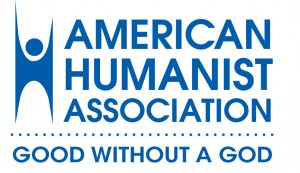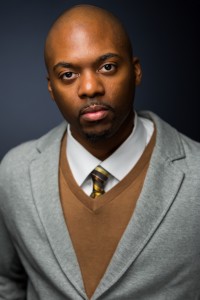Meet the Staff: Sincere Kirabo

Please welcome the newest addition to the American Humanist Association staff, Social Justice Coordinator Sincere Kirabo!
TheHumanist.com: What is your educational and work background?
I first became involved in the secular movement in 2013 as a board member with Black Nonbelievers (BN). With the guidance of BN president Mandisa Thomas, I was able to cut my teeth and learn ways to be more proactive about my activism. I conceptualized a program they’re currently developing called “New Turn,” which aims to provide secular solutions for recidivism.
In 2014, I became a regional director with American Atheists. This opportunity inspired me to become more involved with opposing religious hegemony infiltrating government policies. With this position came more invitations for public speaking, which gave me the experience to hone the way I discuss parallels between religious privilege and other forms of discrimination and oppression.
Last year I began to volunteer for African Americans for Humanism (AAH) with volunteer work, helping coordinate their digital media and assisting AAH director Debbie Goddard in any way possible. Throughout my time spent participating with secular organizations, I also contributed to the movement by writing about religion, atheism, and social issues for various media outlets, including the Humanist and TheHumanist.com.
 I hold certifications in editing and reporting and am currently working on my bachelor of science in psychology. I’ll complete my degree this year—finally! I plan on pursuing my masters in psychology soon after.
I hold certifications in editing and reporting and am currently working on my bachelor of science in psychology. I’ll complete my degree this year—finally! I plan on pursuing my masters in psychology soon after.
TheHumanist.com: What interested you most about working for the American Humanist Association?
My life philosophy has long aligned with this organization’s progressive stances and goals. The social justice coordinator position is simply a dream job for someone deeply committed to social justice through a secular lens. There are few things more satisfying than having a job you’re passionate about and working with an organization you love!
TheHumanist.com: Did you grow up in a particular religious tradition? What was the experience like?
I was raised within a devout Pentecostal family. I became a born-again Christian at eighteen. For a few years, I was a self-proclaimed “Jesus Freak” who ministered to individuals, led group prayers and Bible studies, and even sang in the choir.
Around twenty-one, I became fascinated with church history. I encountered discrepancies between what the Bible said and secular knowledge. This caused me to more vigorously research and examine historian commentary, mythology, philosophical arguments for and against the God hypothesis, and diverse religious belief systems.
I went through a prolonged deconversion period but eventually found that I had outgrown my religious faith. A few years later after accepting I was an atheist, I began to gravitate towards a humanist philosophy. I think author Dale McGowan sums it up best: “Atheism is the first step. Humanism is the thousand steps that follow.”
TheHumanist.com: What’s your favorite book?
Perhaps my favorite book, or at least one of my favorites, is Carl Sagan’s The Demon-Haunted World. I’ve read it in its entirety twice and also listened to it on audio. I still reference it and have no doubt I’ll read it again. The way he made scientific skepticism so easily accessible is why he was such a powerful scientific communicator. His insight is sorely missed.
TheHumanist.com: If you could have dinner with any three people (living or dead), who would they be and why?
The first is Socrates—his work, at least Platonic representations of the social gadfly, has informed my curiosity, skepticism, and thinking. The idea that “the unexamined life is not worth living” revealed by Socrates at his own trial symbolizes an insatiable learning spirit I want to embody. I’ve often thought about what it’d be like to interrogate one another using the Socratic method.
I would also want to have dinner with Shirley Chisholm. She inspires my creativity and activism. When I sit down to write, or when I set out to fight for a cause, I hear her whispering, encouraging me to be a catalyst for change and to be mindful of the way various forms of discrimination relate and intersect.
For the third, I would choose both Assata Shakur and James Baldwin—I couldn’t decide between the two! We could have a special three-party date. I carry with me their courage, their eloquent words, and their legacy of opposing injustice despite the consequences. Both are chief reminders of the mindset Baldwin described when he said, “To be a Negro in this country and to be relatively conscious is to be in a rage almost all the time.”
